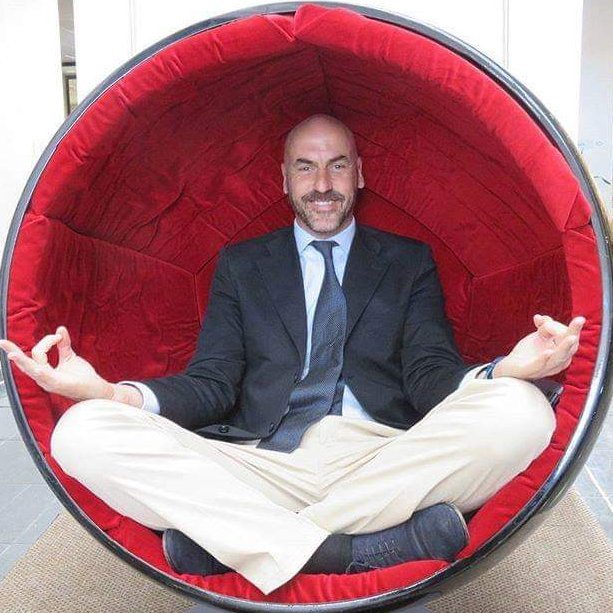COVID-19 hit, what now for SMEs? SME South Africa approached a number of entrepreneurship champions and various stakeholders with the goal of providing strategies for small businesses to survive in what is our new reality.

York Zucchi is a business innovator and chief coffee drinker at the SME Movement, an organisation which supports SMEs across 83 countries, with the majority being based on the African continent.
On the impact the struggling economy will have on how much small businesses will recover in the upcoming year – “Restrategise and opt for a different vessel with which to tackle a world of opportunities”
There is a wonderful saying that a smooth sea never a good sailor made. The struggling economy will expose those who were serious about being entrepreneurs vs those that saw this calling as just an option.
The entrepreneurial roller coaster means that only those that were truly passionate about what they were doing will have enough wind in their sails to ride the quiet seas of what is going to be a really tough time.
But in some way this may be exactly what many a entrepreneurs need. In good times we are so busy chasing prospects, structures and opportunities that we don’t spend enough time asking the tough questions around our business, our business model and our offering. I view a business as a vessel that an entrepreneur creates to ride the seas of commerce.
Many a small vessel will sink or have to go back to port. That doesn’t mean the end of the sailor, but rather an opportunity to force the entrepreneurs to take stock, restrategise and opt for a different vessel with which to tackle a world of opportunities.
On turn around strategies for SMEs post Covid 19/lockdown – “The future of work is selling to small businesses and individuals”

The formula for a successful business isn’t particularly complicated: income must be greater than expenses.
In order to rebuild/fix/change your business to cope with a low growth world, an SME can essentially work on 2 things:
1. Change the expenses structure and make the income side more appealing. In this context, too many SMEs have high fixed overheads (think offices that are bigger than absolutely necessary, self owned warehouses, own kitchens).
There are opportunities to start sharing the expense burden with other businesses (e.g. sharing of kitchens, warehouses, tools, vehicles, back office resources, etc) or on infrastructure that are designed for a flexible environment (e.g. use coworking spaces more where you pay for what you need and not for what you might need).
This is an opportunity to design your cost structure around low fixed costs and high variable costs which means when there is low business activity you have less fixed costs (and of course less margins when business picks up, but at least don’t have the stresses and pressure to find the revenue to cover high fixed costs).
2. On the revenue side, this is a great opportunity to start tapping into where the world is moving to: B2B2SME. Forget big corporates and governments. The future of work is selling to small businesses and individuals. In this context you can look at your offerings and perhaps try and segment it, repackage it and price it according to need.
For example, perhaps historically you offered a take it or leave it total price for your services. In the new world you might offer your services in degrees of complexity, with an entry package (e.g. basic bookkeeping vs SARS submissions and tax advice) offering that allows new customers to try you out and then upsell from there.
In this world pricing and flexibility will be key so having a low fixed cost base is crucial. In your turnaround strategy much more focus should be given to access to markets (vs product and service development efforts) and especially around partnership opportunities with complimentary goods and services.
On taking advantage of new opportunities – “Narrow down your focus substantially”
One of the biggest challenges that entrepreneurs face is around the cost of sales. Many entrepreneurs are so keen to sell (it is after all a source of pride when a customer buys something we created!) that they forget how much effort went into the sale.
I personally used to sell the software I developed for [cost of] R 3,500 a month, but when I analysed my cost of sales – including travel, time spent on proposals, coffees, hand-holding the client, etc.) it cost 10 times that.
For entrepreneurs to succeed in taking advantage of new opportunities they will have to narrow down their focus substantially, focusing on a very small niche of clearly defined customers.
Make the whole sale process – creating brochures, FAQs, selling, delivering, etc. so easy that it can be institutionalised quickly and outsourced to someone else down the line (otherwise you will be stuck with yourself as a bottleneck for years to come).
On ways to pivot business models – “Make it easy for people to understand what you solve”
Awareness of what exists is a good place to start. Depending on the industry you are in there are probably between 10 and 40 ways of selling what you sell. Go and research business models in SaaS (as an example: Software as a Service (Saas) – things like Microsoft, Google, Dropbox, etc.
Search for inspiration from what others are doing – and how they are doing it – and see which resonates with you and your feeling around your clients. In the previous paragraphs we looked at ways to deliver your service or product to market, but essentially it revolves around this: if people struggle to understand what you do you will not succeed.
I often ask entrepreneurs to look at their Linkedin profiles and their websites. These are often ego-designed profiles and presences that do little in terms of lead generation. Change that.
Make it easy for people to understand what you solve, this is often easier said than done but one of the easiest way to pivot their businesses. Try this … get a pen and paper and in one very short paragraph – no longer than a Twitter profile – describe the exact problem you solve… e.g. You are not a website developer: you are someone who helps small shop owners grow their revenues by selling more online…)
On cost cutting measures – “Remove that which takes energy, resources and attention”
Cost cutting is one of the best things you can do to give yourself breathing room.
The higher your costs the more you are under pressure to make the revenue to pay for these costs and the less you spend on innovation. With that in mind, your aim isn’t necessarily to just cut costs, but to remove that which takes energy, resources and attention.
On the ‘coronapreneur’ – “If you feel you are making money and adding value to society then by all means go for it”
How is “Coronapreneur” different from “Tenderpreneur” or any other opportunity-based entrepreneur? They exist and will always exist.
I personally view entrepreneurs as individuals who try and bring their innovative thinking to solve a problem that leaves the world in a better place. Coronapreneur are in my view less entrepreneurs and more traders, taking advantage of a short term trading opportunity. Still, they might just open our eyes to opportunities that we may have missed in the past (e.g. look at the phenomenal sartorial talent and creativity that sprung up with designing of masks… where else will this talent be deployed? Customizing jeans? Creating hospital jackets and work attire that makes people proud to wear it?).
I personally struggle with making money out of situations where people are suffering, but I understand it. If you feel you are making money and adding value to society then by all means go for it!
But remember you only have one reputation and soon thanks to the advent of technologies like blockchain, that reputation will be locked to your profile forever so please choose the opportunities you are proud to be associated to, because in the world of work that is about to reveal itself, our reputation will be worth everything: we will buy because we believe in your why (if you aren’t sure what this means Google Simon Sinek’s talk about the “Why”).






